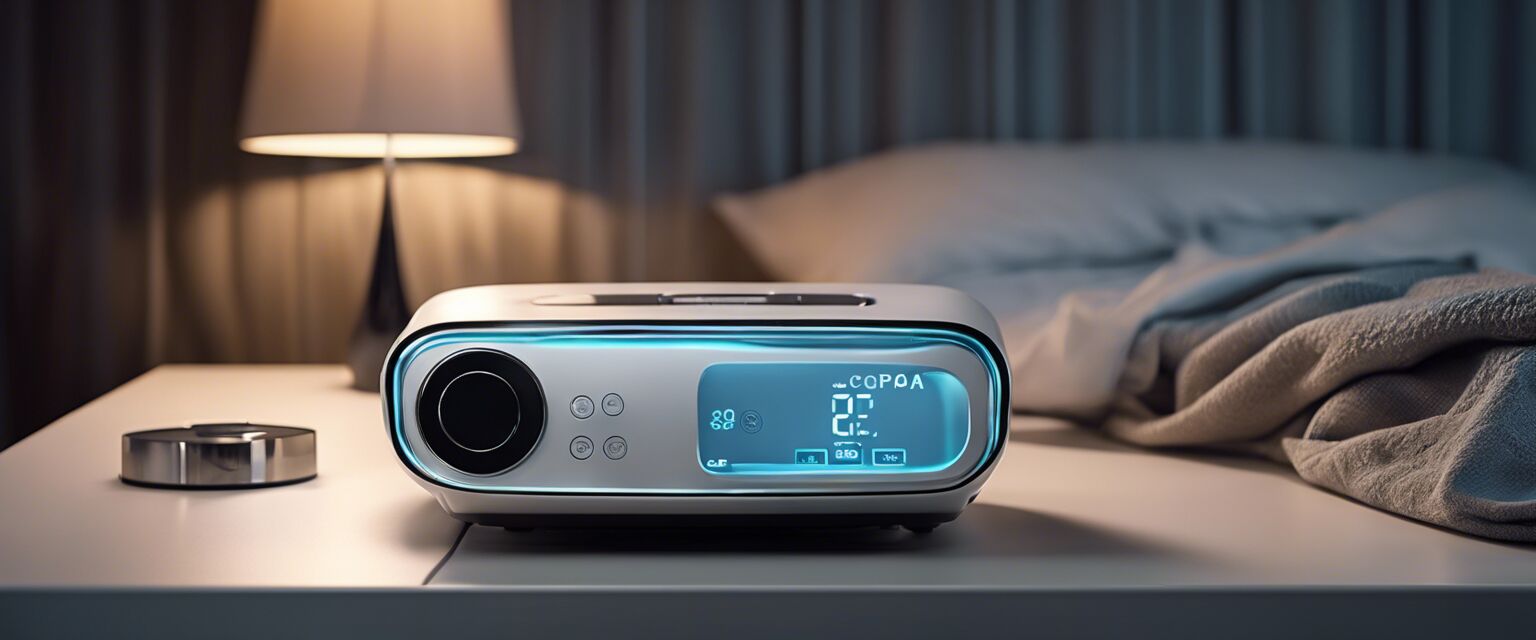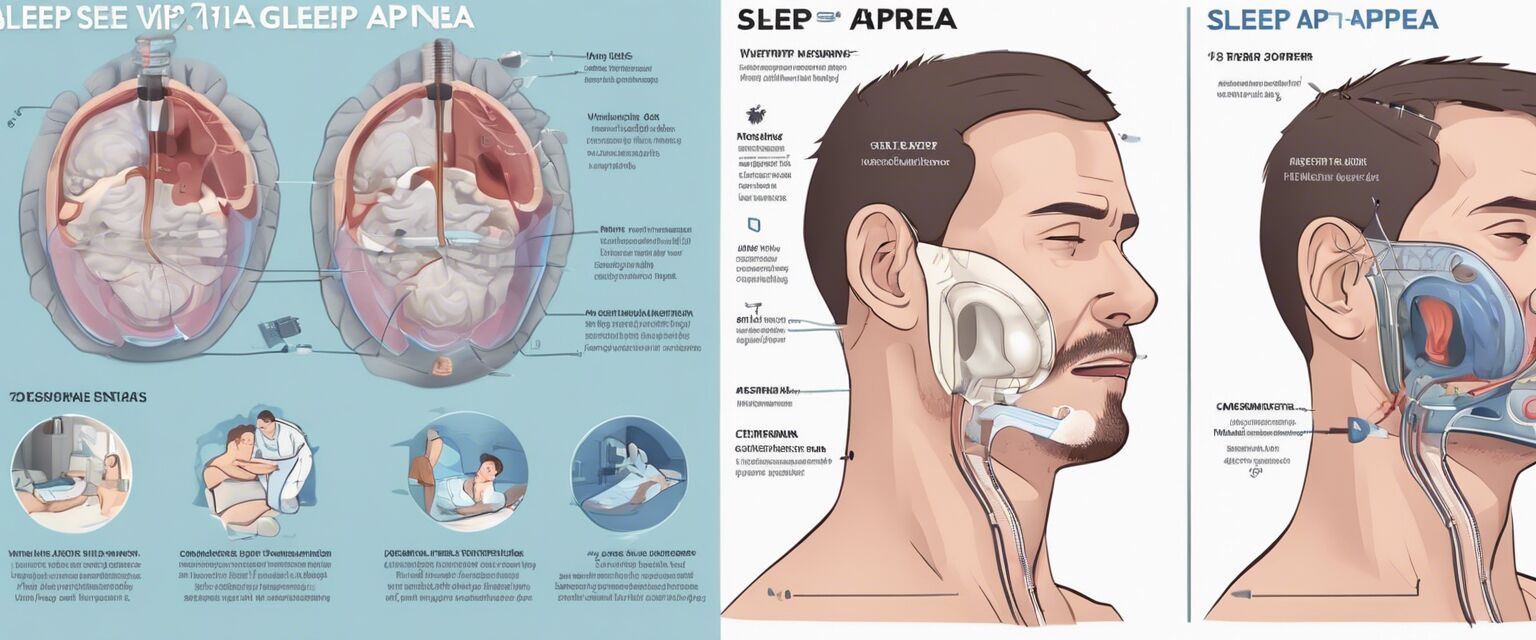
Lifestyle changes
Key takeaways
- Understanding lifestyle changes can significantly impact sleep apnea symptoms.
- Implementing healthy habits can enhance sleep quality.
- Simple modifications can lead to better overall well-being.
Managing sleep apnea can often seem overwhelming, but making certain lifestyle changes can significantly aid in mitigating symptoms. In this article, we will explore various lifestyle adjustments that can help improve sleep quality, making your journey toward better sleep more manageable. From dietary choices to sleep hygiene, letâs delve into the effective ways to enhance your nightly rest.
Understanding sleep apnea
Sleep apnea is a sleep disorder characterized by repeated interruptions in breathing during sleep. These interruptions can lead to poor sleep quality and result in various health issues. While medical treatments are available, lifestyle changes play a crucial role in managing this condition.
Common types of sleep apnea
- Obstructive sleep apnea (OSA): The most common form, caused by a blockage of the airway.
- Central sleep apnea: Occurs when the brain fails to send proper signals to the muscles that control breathing.
- Complex sleep apnea syndrome: A combination of obstructive and central sleep apnea.
Key lifestyle changes to consider
Implementing specific lifestyle changes can have a profound effect on managing sleep apnea symptoms. Here are some essential adjustments to consider:
1. Maintain a healthy weight
Excess weight can exacerbate sleep apnea symptoms. Losing even a small amount of weight can reduce the severity of the disorder. Hereâs how you can achieve it:
- Engage in regular physical activity.
- Follow a balanced diet rich in fruits, vegetables, and whole grains.
- Monitor portion sizes to maintain a healthy caloric intake.
2. Improve sleep hygiene
Establishing a consistent sleep routine can enhance sleep quality. Here are some tips:
- Go to bed and wake up at the same time every day.
- Create a calming pre-sleep routine, such as reading or meditating.
- Avoid screens and bright lights at least an hour before bedtime.
3. Limit alcohol and sedatives
Alcohol and sedatives can relax the throat muscles, worsening sleep apnea symptoms. Consider the following:
- Avoid consuming alcohol, especially close to bedtime.
- Discuss with your doctor about any prescribed sedatives.
4. Quit smoking
Smoking can increase inflammation and fluid retention in the upper airway. Quitting smoking can lead to significant improvements in sleep apnea symptoms. Here are some resources:
- Seek support groups or counseling.
- Consider nicotine replacement therapies.
5. Create a comfortable sleep environment
Your bedroom setting can play a vital role in your sleep quality. Here are some recommendations:
- Invest in a comfortable mattress and pillows.
- Keep the room dark, quiet, and cool.
- Consider using white noise machines or earplugs to block out disturbances.

Additional lifestyle changes
Aside from the above, the following changes can also help manage sleep apnea:
1. Regular exercise
Engaging in physical activity can improve sleep quality and help with weight management. Aim for at least 30 minutes a day of moderate exercise.
2. Stay hydrated
Drinking water throughout the day can prevent dehydration, which can worsen sleep apnea. Ensure adequate fluid intake, especially before bedtime.
3. Manage allergies
Allergies can contribute to breathing difficulties during sleep. Keep your sleeping area clean and consider using air purifiers to reduce allergens.
Table of lifestyle changes and their benefits
| Lifestyle Change | Benefits |
|---|---|
| Weight management | Reduces airway obstruction. |
| Improved sleep hygiene | Enhances sleep quality. |
| Limiting alcohol and sedatives | Decreases throat muscle relaxation. |
| Quitting smoking | Reduces airway inflammation. |
| Comfortable sleep environment | Promotes restful sleep. |
Conclusion
Making lifestyle changes is a vital part of managing sleep apnea symptoms. By adopting healthier habits and creating a conducive sleep environment, you can significantly improve your sleep quality. Remember, itâs essential to consult with a healthcare professional for personalized guidance. For more information on enhancing your sleep, check out our articles on natural sleep aids and sleep monitoring tools.
Pros
- Can lead to better sleep quality.
- Improves overall health and well-being.
- Easy to implement in daily life.
Cons
- Requires consistency and dedication.
- Results may vary from person to person.

Tips for beginners
- Start small by incorporating one change at a time.
- Keep a journal to track your progress and feelings.
- Seek support from friends or family to stay motivated.









